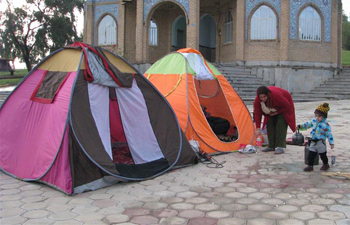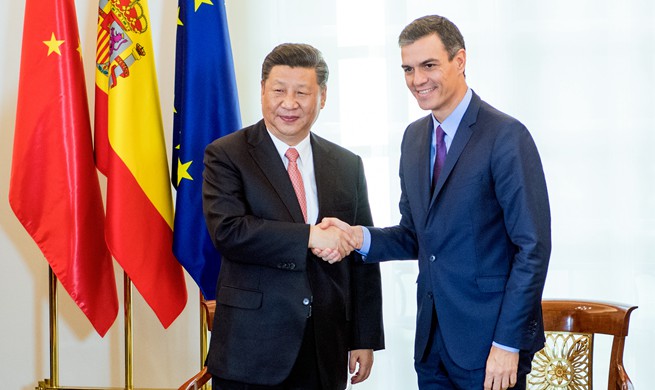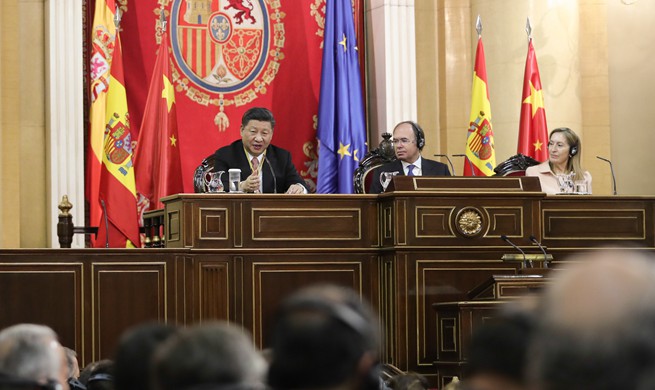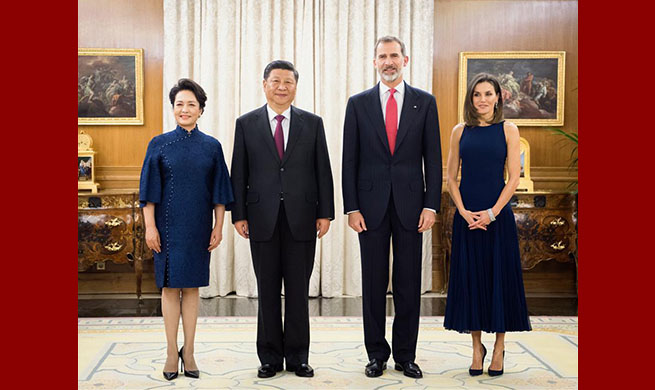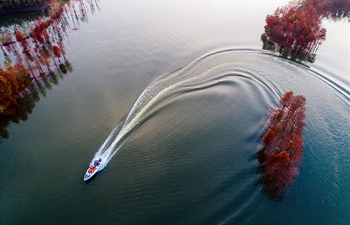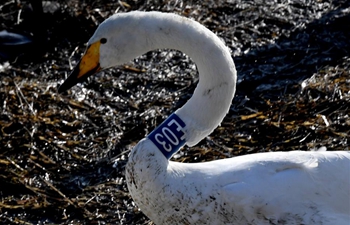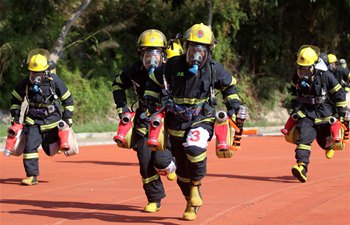By Alexia Vlachou
ATHENS, Nov. 28 (Xinhua) -- What are the most common pieces of litter along Greek coasts? The clean-up activities taking place in September and October in 44 beaches in 10 Cycladic islands give the answer -- cigarette butts, plastic waste, and metal wires among others.
The results were released this month by the A.C. Laskaridis Charitable Foundation, which launched recently a five-year environmental program called "Sea Change Greek islands", in a bid to reduce plastic waste and marine pollution in Greece.
During the first year of the program, ten islands in the Aegean Sea run multi-level actions, including coastal cleanups, underwater deep-sea cleanups, environmental education, and awareness activities, to keep the waters and beaches clean, and to empower local people.
"Its main goal is to limit plastic pollution and to educate people in order to use less plastic in their everyday life," Angeliki Kosmopoulou, executive director of the A.C. Laskaridis Charitable Foundation, told Xinhua.
Dozens of local people volunteered to pick up trash from the beaches that were packed with tourists during summer, "We work in teams to achieve the best result and to collect and record on the app all piles of garbage that we have collected," said Nick Katsis, a volunteer.
Volunteers keep a record on an application so they can build a public documentation of the marine pollution.
"After we leave a beach, we have a very clear idea of what type of litter was gathered there," Kosmopoulou said, "We try to interpret what we found and see who was there, like what type of occasion created a specific group of garbage."
According to the study, all top items retrieved were cigarette butts, microplastic parts, plastic bottle caps, plastic straws, bottles, and bags.
"The number one that we found on the beaches were cigarette butts that made nearly 40 percent of the total garbage we collected. It is a sign that the problem of marine pollution is our problem," Kosmopoulou noted.
Speaking about the program, Kosmopoulou explained that they signed MoUs with all the mayors of the islands who welcomed the initiative.
In the small island of Sikinos where it was the starting place of the program, they signed a MoU with every single inhabitant.
"People liked it. They supported it. Schoolchildren were enthusiastic because not only did we get into the classrooms and talked to them, but we gave them toolkits like science kits. We wanted to turn them into young scientists," she added highlighting that people should be part of the solution.
Also, the local community of Sikinos decided to ban the use of plastic straws and replace them with biodegradable to raise awareness on plastic pollution this summer.
"A few days after the launch of our campaign, the European Union decided that they are going to start a big campaign against single-use plastic. So, in a way, we opened the ground for this discussion in Greece," she said.
In Europe, experts talk over the ocean crisis and the threats posed. In January, the European Union launched a campaign strategy to reduce plastic across its member states, including Greece.
In Greece, the culture of recycling is still lagging. Greeks recycle only 20 percent of the plastics they use, according to a WWF report published this year.
This year, the country harmonized a relevant law with EU legislation where consumers are obliged to pay a certain fee per plastic bag as part of renewed efforts to protect the environment.





